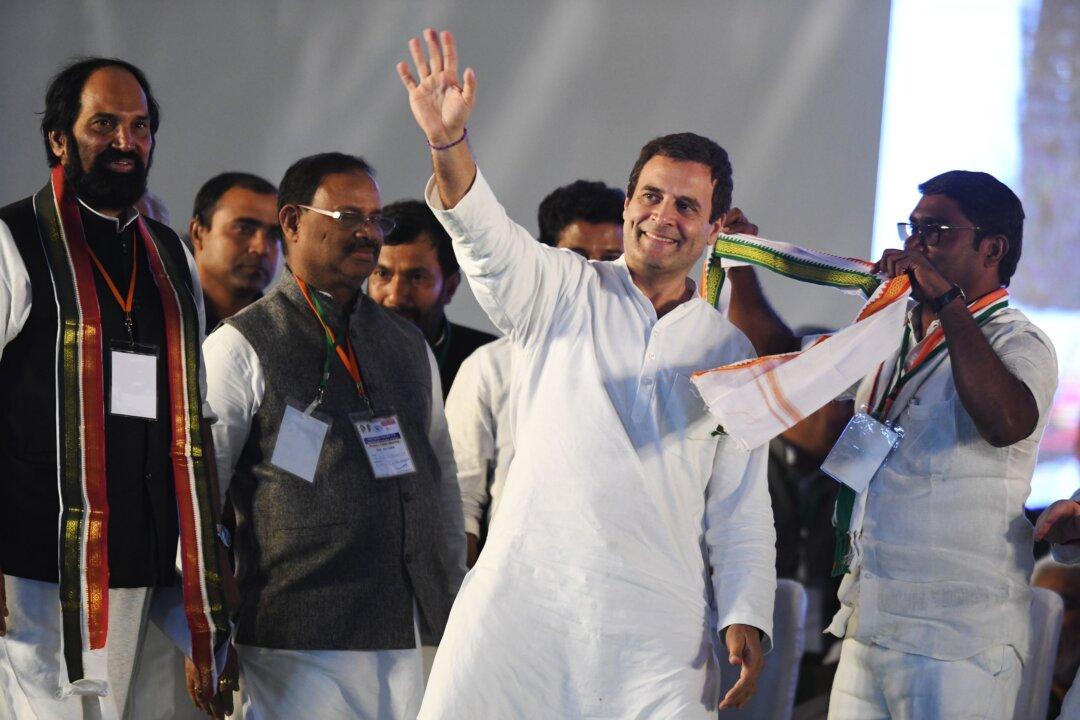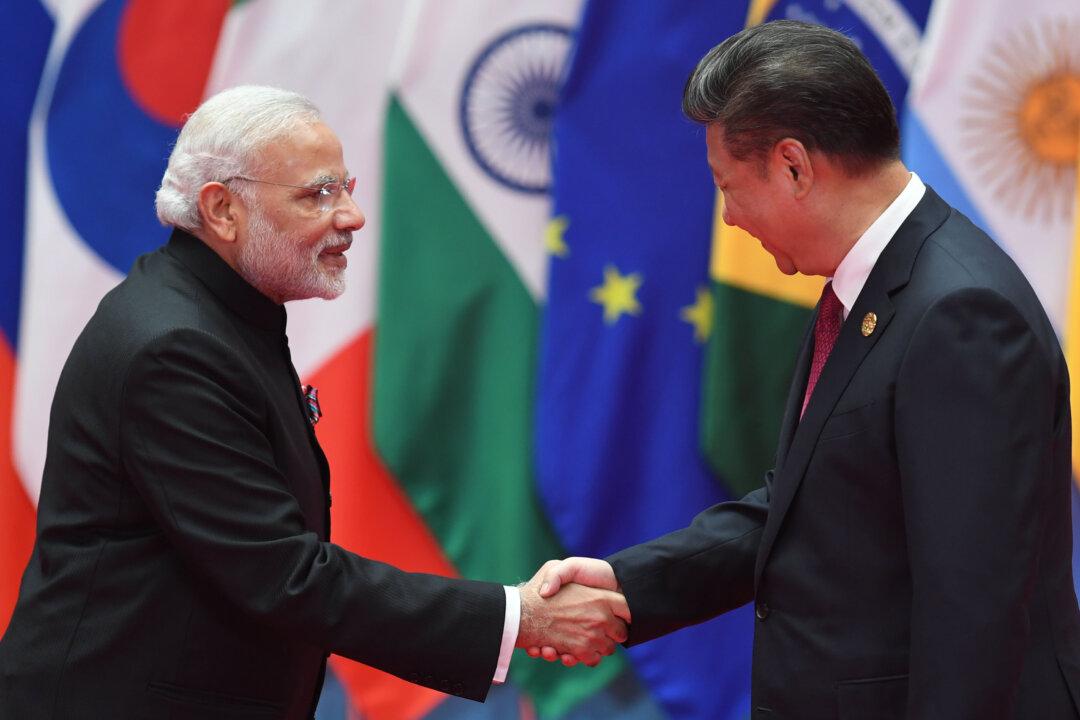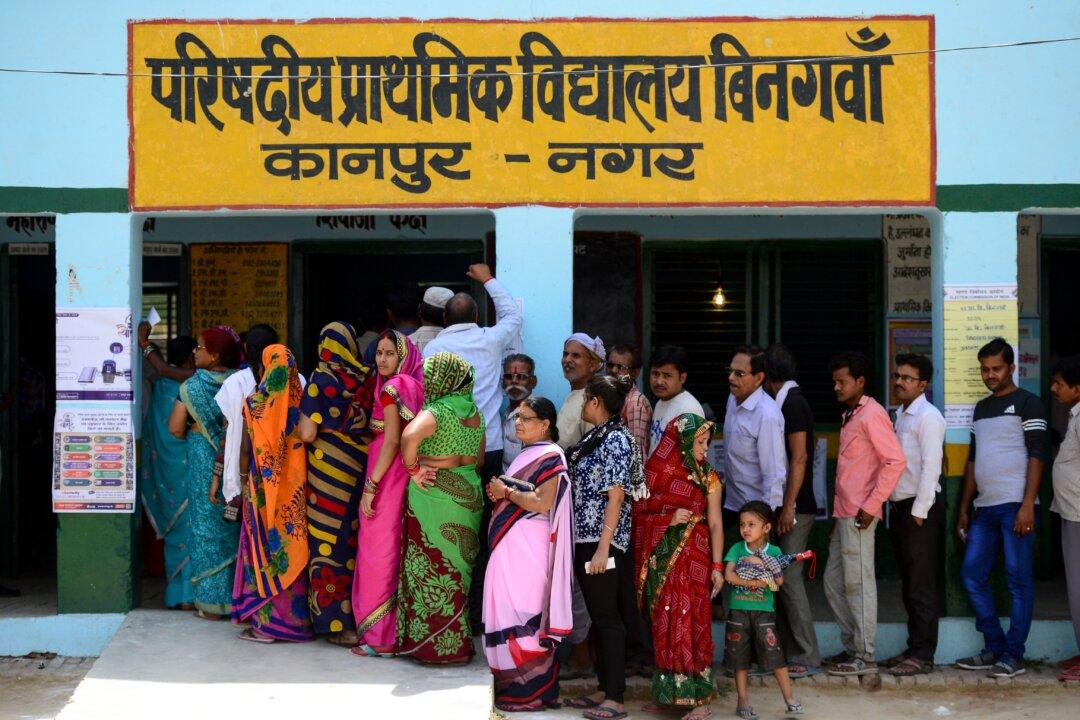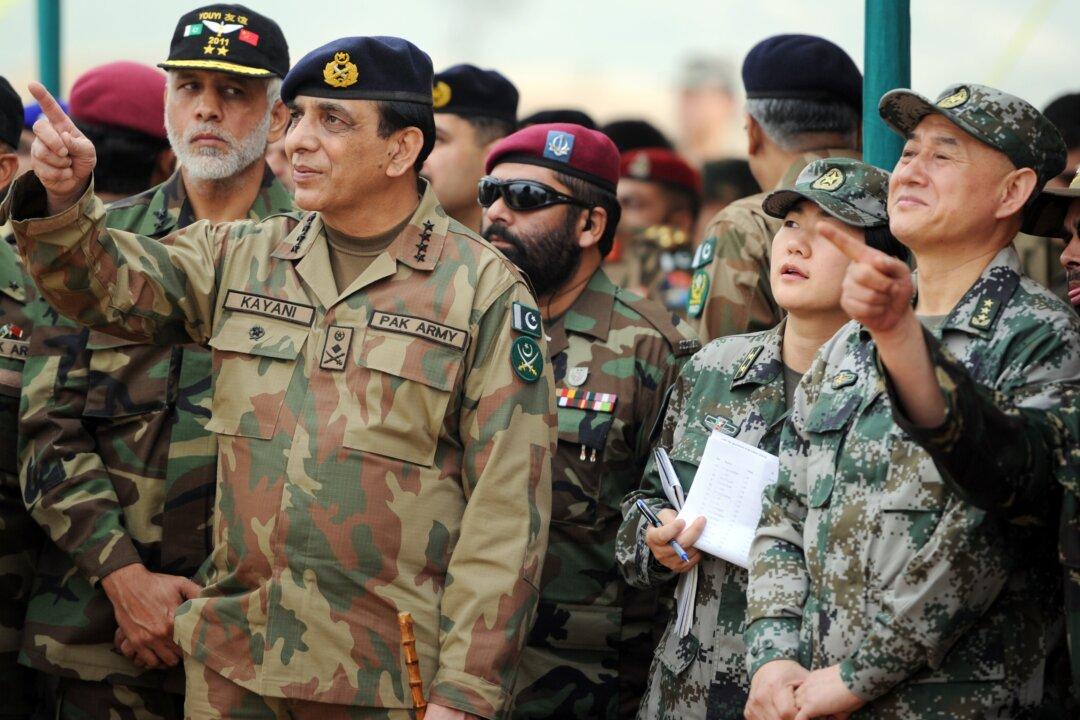DELHI, India—It started with a hug, at least in the public sphere.
In July last year, Indian opposition parties, including the Indian National Congress (INC), brought a no-confidence motion against the ruling Bharatiya Janata Party (BJP) in Parliament. While the BJP won the majority vote, saving the government from embarrassment, INC President Rahul Gandhi scored a hit too.



